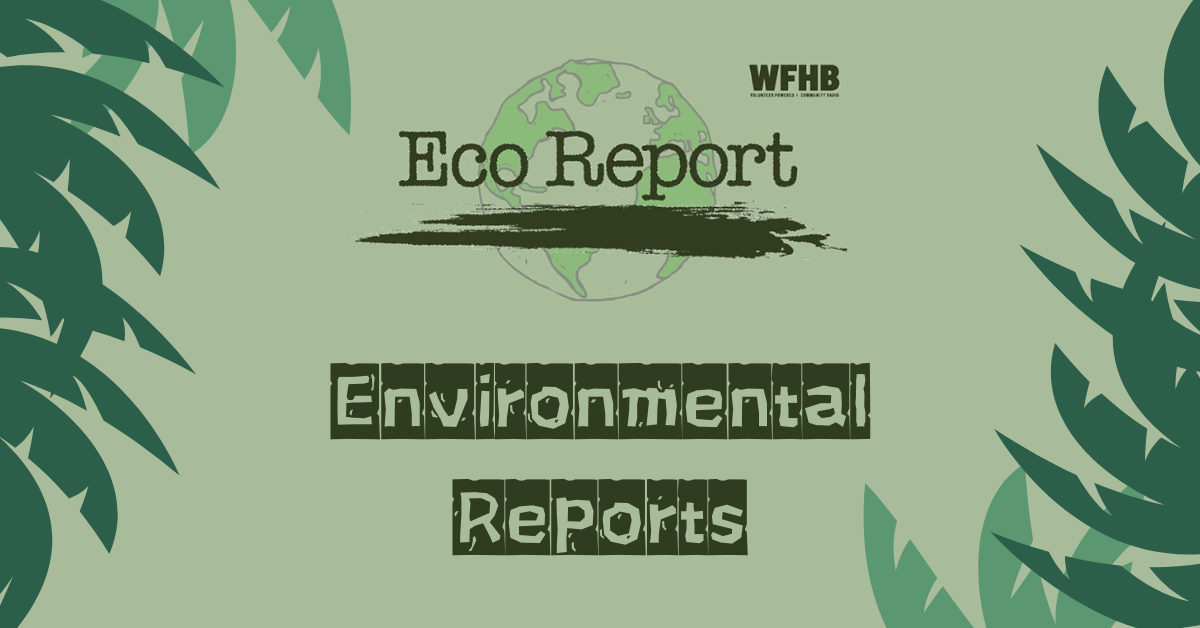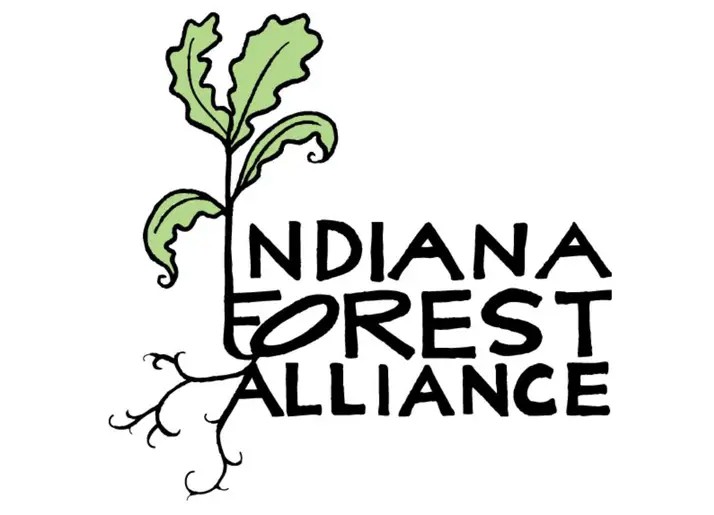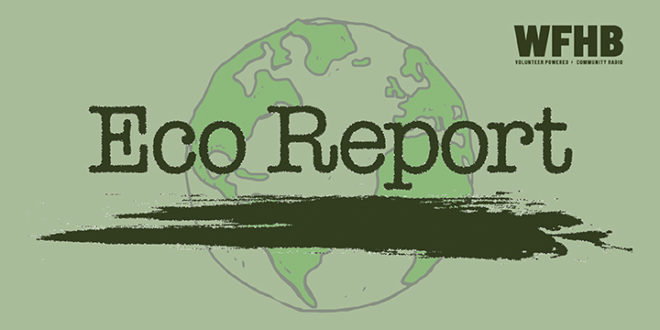Podcast: Play in new window | Download (Duration: 30:35 — 42.1MB)
Subscribe: RSS
On this Fund Drive edition of Eco Report, we alert you to an event just recently planned for the evening of Earth Day, this coming Monday. A Community Forum on Management of Hoosier National Forest has finally come to Bloomington, hosted by IFA and Friends of Lake Monroe. Forest Supervisor Michael Chaveas will be on the panel, from our neck of the woods. More later in the program.

We have been talking with you about plastic for the past several shows of EcoReport. We wrap it up today with suggestions on how you can use and have less plastic in your life.
To start with the most obvious – it’s best to find trash receptacles for your trash rather than toss it indiscriminately out your window or on the ground as the majority is plastic and likely to get stuck in bushes and trees.
Making use of paper, tin foil or wax paper can also reduce plastic use. Plastic wrap or storage bags have chemicals that interact with heat and moisture so wrapping any meat purchases in paper like butchers have done for decades is preferable.
While plastic bags are convenient for storing leftovers, we suggest you was and reuse them. Since they can be expensive, the bonus is you save a little money.
Another way to limit your plastic use is to avoid overpackaged foods and other products. 28 percent of trash in landfills comes from packaging. Please remember, plastic does not break down. Try to buy products with minimal or reusable packaging or buy in bulk and use your own containers.
Those plastic forks, spoons, and straws we see at picnics or when you order food to go or be delivered are neither biodegradable or recyclable. Prior to the pervasiveness of plastic, folks carried their own utensils and food containers which is an option we still have. It is also possible to tell a restaurant, you do not want the plastic utensils or straws.
When shopping, making use of your own reusable shopping totes is the more eco-friendly option. Try no to use the plastic bags they give you when you shop.
Believe it or not, often your clothing has plastic in it. Polyester and acrylics are made from plastic. It is wise to check the label before you buy new or secondhand clothing.
I could go on and on about plastic. We live in a world that is completely filled with it and it is almost impossible to not have or use it. All you can do is try to cut down and use less. Word has it that the plastic industry is working on ways to truly recycle and reuse plastic that is affordable. Let’s hope they do, because the Earth has become a huge trash can and nurdles are washing up on our shores.
A story in the New York Times reports the E.P.A. says ‘forever chemicals’ must be removed from tap water. The rule applies to a family of chemicals known as PFAS that are linked to serious health effects.
Water utilities argue the cost is too great. For the first time, the federal government is requiring municipal water systems to remove six synthetic chemicals linked to cancer and other health problems that are present in the tap water of hundreds of millions of Americans. The extraordinary move from the Environmental Protection Agency mandates that water providers reduce
perfluoroalkyl and polyfluoroalkyl substances, known collectively as PFAS, to near-zero levels. The compounds, found in everything from dental floss to firefighting foams to children’s toys, are called “forever chemicals” because they never fully degrade and can accumulate in the body and the environment.
The chemicals are so ubiquitous that they can be found in the blood of almost every person in the United States. A 2023 government study of private wells and public water systems detected PFAS chemicals in nearly half the tap water in the country.
Exposure to PFAS has been associated with metabolic disorders, decreased fertility in women, developmental delays in children and increased risk of some prostate, kidney and testicular cancers, according to the E.P.A. The E.P.A. estimated it would cost water utilities about $1.5 billion annually to comply with the rule, though utilities maintain that the costs could be twice that amount and are worried about how to fund it.
States and local governments have successfully sued some manufacturers of PFAS for contaminating drinking water supplies, but the settlements awarded to municipalities have been dwarfed by the costs of cleaning up the chemicals, municipal officials said.
Industry executives say taxpayers will ultimately foot the bill in the form of increased water rates.
Feature Report:


And now we turn to Zyro Roze and members of the Indiana Forest Alliance for more on the Community Forum on Management of Hoosier National Forest coming up this Monday at the Monroe County Public Library.

Are you looking for a way to make a difference on environmental issues?
Here at EcoReport we are currently looking for reporters, engineers, and segment producers. Our goal is to report facts on how we’re all affected by global climate disruption and the ongoing assaults on our air, land and water. We also celebrate ecologists, tree huggers, soil builders and an assortment of champions who actively protect and restore our natural world, particularly those who are active in south central Indiana.
All levels of experience and all ages are welcome, and we provide the training you’ll need. W-F-H-B also offers internships. To volunteer for Eco-Report, give us a call at (812) 323-1200, or e-mail us at: [email protected].

- A Global Climate Strike is taking place on Sunday, April 21st, from 4 to 4:30 pm at the Monroe County Courthouse. Come with signs and support.
- Celebrate Earth Day at McCormick’s Creek State Park at the Happy Earth Day event on Monday, April 22nd, all day. Explore trails, waterfalls, wildflowers and the love of being outside in nature.
- Learn all about Owls during the Nature Sounds Owls concert on Friday, April 26th, from 6:30 to 7:30 pm at the Rogers Family Park in the barn. Musical guest is Stephanie Heidemann. Bring your own seating.
Credits:
This week’s headlines were written by Norm Holy, and Julianna Dailey.
Today’s news feature was produced by Zyro Roze and Kade Young.
Julianna Dailey assembled the script which was edited by the EcoReport team.
Julianna Dailey compiled our events calendar.
Kade Young and Noelle Herhusky-Schneider produced today’s show.
Branden Blewett is our engineer.
 WFHB Bloomington Community Radio
WFHB Bloomington Community Radio


